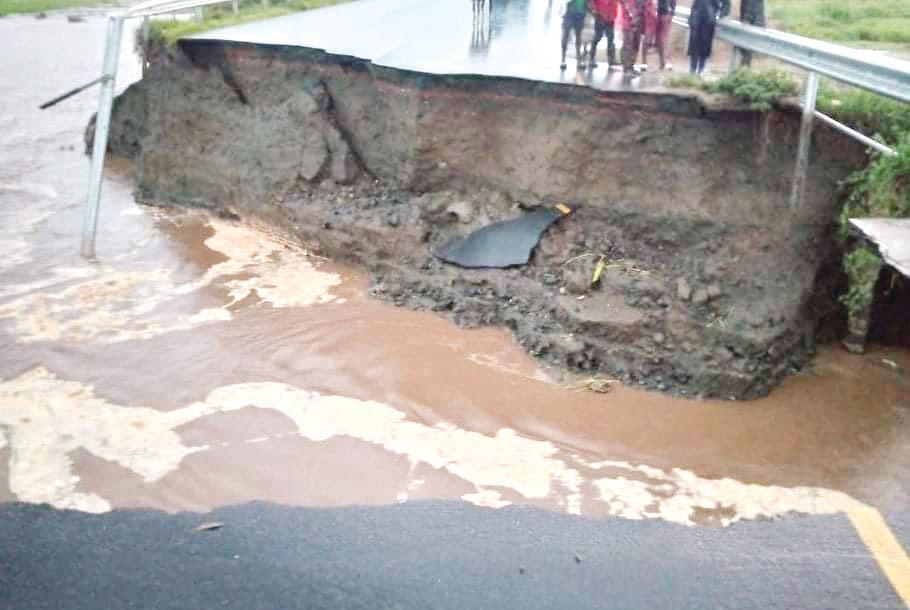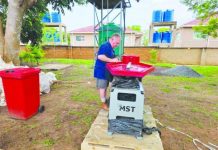Africa-Press – Malawi. As roads and other infrastructure, one by one, have started buckling under pressure due to heavy rains and cyclones, some are arguing it is high time government and the construction sector revisited their standards
In the wake of damage to roads and other infrastructure in some parts of the country that made some areas inaccessible, experts are emphasising that the situation could be turned around if Malawi were to have its own sets of National Building Code and National Construction Code.
Malawi Bureau of Standards Deputy Director of Testing Institution Steven Chalimba said most of the infrastructure is constructed without national guidance suitable for Malawi.
The challenge with the arrangement, experts add, is that the geographical and weather patterns for Malawi are not similar to those in such countries, hence the destruction in the face of tropical cyclones Ana and Gombe that have exposed poor workmanship on the roads and bridges.
“Our roads are poor and not strong. We use standards from South Africa and one of the issues is that they do not have heavy rains there, hence their drainages are shallow. And here we have heavy rains and shallow drainages,” Chalimba said.
As a result of recurring cyclones, recently many roads in the country were cut off and bridges were washed away with drainages flooded. In the absence of national standards, Chalimba said, some contractors take advantage and use short cuts in their work as there is no one to check against recommended standards.
“For the construction and building sectors to tick, they require such guidelines, otherwise everything is based on perceptions,” he said, adding: “If we have the national codes, everyone will be forced to comply with the recommended standards, otherwise these days our buildings collapse easily.”
Lilongwe City Council engineer Cleaverson Nyando concurred with Chalimba that the country does not have national codes for the building and construction industry and that the sector borrows standards from South Africa and the United Kingdom.
But he was quick to add that the poor workmanship of the roads, bridges and buildings should not be largely attributed to the absence of the codes because the borrowed ones do provide required standards. He said foreign standards provide for all-weather patterns and a country picks the weather close to it.
“From what I know, most of the buildings have British standards (BS). They are OK. They may need modifications on some codes. For roads, we are using regional design codes for the southern regional part of the African continent,” Nyando said, adding: “Even our Bill of Quantities are based on South Africa standards.”
Nyando said the collapse of bridges and damaged roads is because the designs of such infrastructure were done a long time ago and are no longer applicable to requirements for now.
He said, at that time, the design took into consideration the vegetative cover which is no longer available now, hence the floods. He further said the construction industry has some contractors who are not quality-conscience and use short cuts in their work.
He also said poor buildings which collapse easily are a result of untrustworthy laboratory officers who are supposed to test buildings to the required standards.
Asked if it is necessary to have national building and construction codes, Nyando said: “For pride, let us have them.” Minister of Transport and Public Works Jacob Hara said he did not know why the country does not have national building and construction codes.
“I would not know why they were not prioritised in the previous regimes. All I can say is that we are now developing them and they are at a very advanced stage,” Hara said.
However, Malawi Institute of Engineers Chief Executive Officer (CEO) Arthur Wengawenga said the country does have some codes but was quick to refer us to National Construction Industry Council where we struggled to get hold of the acting CEO Gerald Khonje.
Battered roads and bridges, some broken into halves as well as crumbled buildings are a common sight in the country, especially in districts that were recently hit by cyclones and those we spoke to have said since independence, construction of roads and other infrastructure has lacked national guidance and, instead, the industry has been guided by borrowed codes from other countries. All the cities in the country also have a poor drainage system, which risks the cities to submersion one day.
For More News And Analysis About Malawi Follow Africa-Press






